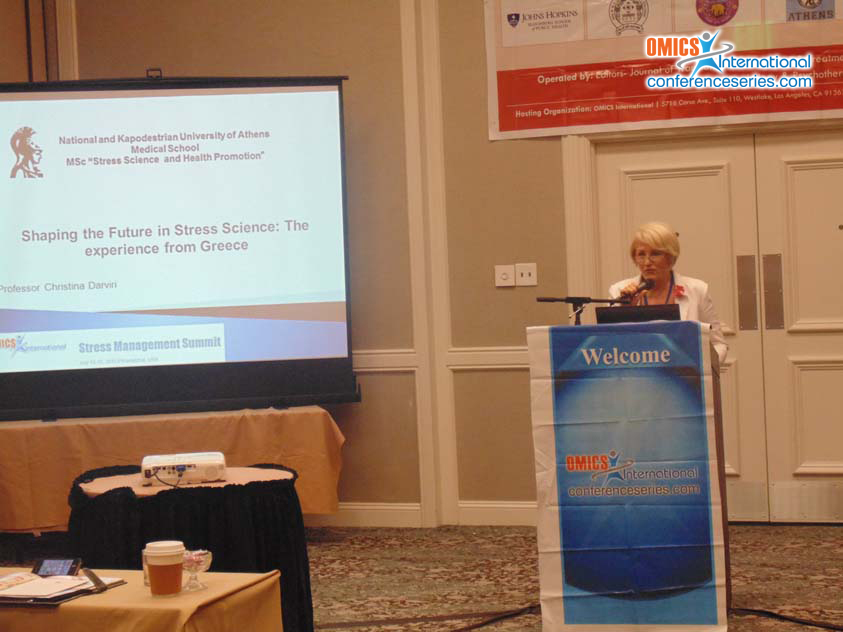
Christina Darviri
University of Athens, Greece
Title: Pythagorean self-awareness for stress management, memory improvement and sense of well-being in mild cognitive impairment: A pilot study
Biography
Biography: Christina Darviri
Abstract
Mild cognitive impairment (MCI) may signify the emergence of future neurodegenerative disease and dementia. Early detection of MCI might allow taking preventive measures and delay disease progression. Research on preventive measures for dementia is still in its infancy. As such, the primary aim of this study was to investigate the efficacy of a newly introduced program on cognitive function of patients with MCI. Samples of 36 patients with MCI were randomized to receive a 8-week intervention vs. usual care. The program called \"Pythagorean Self-awareness for Stress Management, Memory Improvement and Sense of Well-being\" was based on Pythagorean philosophy. This was an individually practiced, mental process (twice per day) which entailed three stages: sequential recall of daily events, primary contemplation on thoughts and emotions related to each event and the critical appraisal of the individual\'s attitude. Measurements of cognitive function, stress, depression, anxiety and self-efficacy were performed using standardized questionnaires. Global cognitive function (Mini-Mental Status Examination test), memory (Five Word test), processing speed (Symbol Digit Modality test) and visuospatial memory (Brief Visuospatial Memory test) significantly improved in the intervention group compared to the control group (p<0.05). The effect sizes were large (effect size r>0.5). Significant improvements were also revealed for depression, stress, anxiety and self-efficacy (p<0.05, effect sizes >0.5). This study suggests that this program could enhance cognition and improve affect and self-efficacy in MCI patients. Future research should be performed to confirm these results and hopefully provide a novel non pharmacologic prevention tool in dementia.

